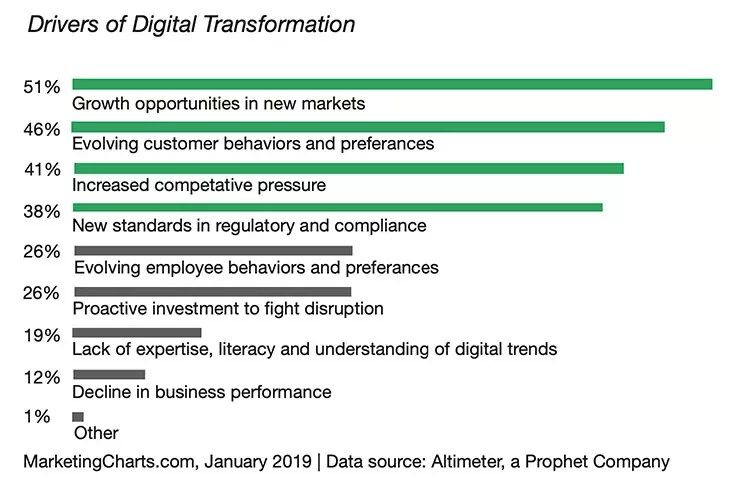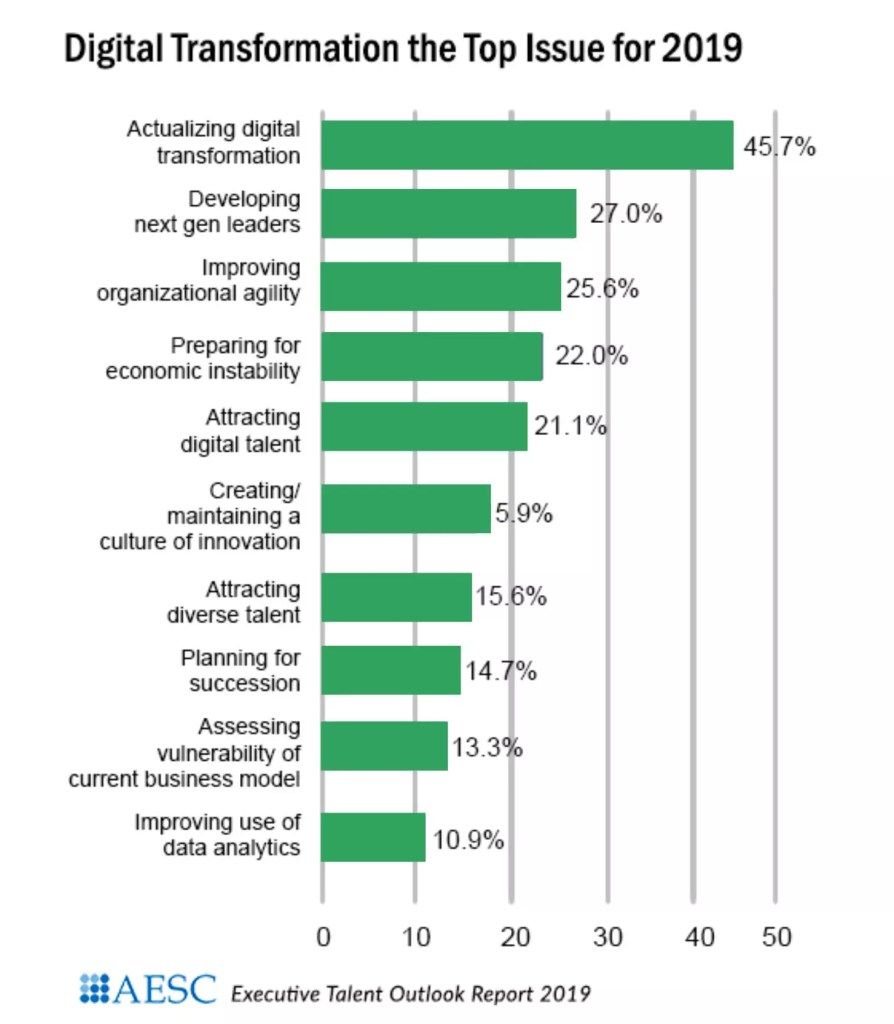Why Digital Transformation Has Become a Prerequisite for Success

Digital transformation is a prerequisite for most companies to maintain their competitive or leading position. Especially in these uncertain times, it has become apparent that digitization is indispensable for companies if they want to be and remain successful. The company must be agile and innovative and, moreover, always put the customer first (customer-centric). Digitization is a catalyst that can provide the company with a competitive advantage.
It is important to be innovative at different levels within the organization. For that to succeed, it is vital that there are commitment and a willingness to change at all levels of the organization. This requires a shared understanding of what digital transformation means and what new technologies entail. Research has shown that when all employees understand how new technologies change their work, they are more positive about digital transformation and more willing to support and ensure the success of such a change process.

Digital transformation is now a prerequisite for companies to maintain their competitive or leading position. Especially in these uncertain times, it has become apparent that digitisation is indispensable for companies if they want to be or remain successful. Successful organisations understand that only incremental improvements, i.e. doing digital, is not enough in the long term. But that transformational ad disruptive change, i.e. being digital, must be ensured.
Incremental Innovation
Initially, and in most cases (roughly 75% of the time), digitalization is about optimizing existing processes (incremental innovation) that yield improvements in the short term. These improvements will mainly be visible on the cost side of the company, but in a number of cases, they can also have a positive effect on the turnover side, for example, because customer satisfaction will increase. Incremental innovation is almost always fed from the operational side of the company; where one is in daily operational contact with internal and external customers, where one encounters inefficiencies and where problems cause operational “pain” or dissatisfaction. Simple examples are: the use of a chatbot in a call centre to handle the simple calls, autonomous robots in a warehouse to increase efficiency or the use of data and algorithms to streamline orders.
Transformation
To a lesser extent (20% of the time), and in the medium term, transformation deserves attention within the company. By transformation, we mean offering new or adapted products or services to existing or new customer groups. This offers opportunities for cross and upsell and often also for a rapid market introduction of new products. The effects of such transformation are mainly visible on the revenue side and will eventually broaden and deepen the customer portfolio. Transformation, in most cases, comes is driven by the middle management within companies; for example from the sales
or marketing department. Experimenting, learning and testing in short cycles are key concepts here. Some examples include setting up a web store to serve new regions, using recommendation algorithms to increase sales or using blockchain within the supply chain.
Disruption
We call the third level disruption. The company wonders whether, and how, they could make themselves redundant in the longer term (5%). “What if we started all over again as our own competitor?” All conventions and paradigms are challenged in the search for new products, services and business models. The effects of transformation are fundamental and determine the long-term survival of the company. How do we remain relevant in the market in the long term?
The impetus and support for disruptive thinking are provided by the company’s senior management. Usually elaborated by an internal innovation team in a corporate startup setting, which may or may not be supported by an external party. Examples of disruption are: digital travel sales, making travel agencies unnecessary, transforming a product organization into a ‘Software-as-a-Service’ model, in which products are no longer sold but subscriptions and where data plays a key role.
Successful companies understand that only incremental improvements (doing digital) are not enough in the long term, but that transformational changes (being digital) must also be considered.
This requires a change in the mindset of the entire company whereby people are open to and see the opportunities of digital transformation. Only then will a company not “do digital”, but “be” digital.

To ensure that the entire company is “on board” and there is no resistance in the digital transition, it is important to develop a common language, level of knowledge and vision for digital innovation.
Unlock.Digital
Datafloq University has developed a unique, online, training program to fully utilize the “digital potential” of your company. We believe that every organization is actually a data organization, which offers endless possibilities but also entails great responsibilities. It is important to bring these possibilities and responsibilities together in the right balance. This program offers you and all your employees the tools to not only understand and do digital but to become truly digital and use all possibilities.
In contrast to existing (online) digital transformation programs, Datafloq University offers a program that is aimed at senior management, middle management and operational staff. All employees, management and executives are introduced to the same theory and terminology, providing a broad and shared basic understanding of emerging technologies, capabilities and challenges. Each group from its own perspective that matches the job level of the employees. The theoretical framework is supported by very practical examples in order to achieve a steep learning curve.
If you are interested to learn more about this unique digital transformation training and how we can help your organization, you can download our brochure here.


